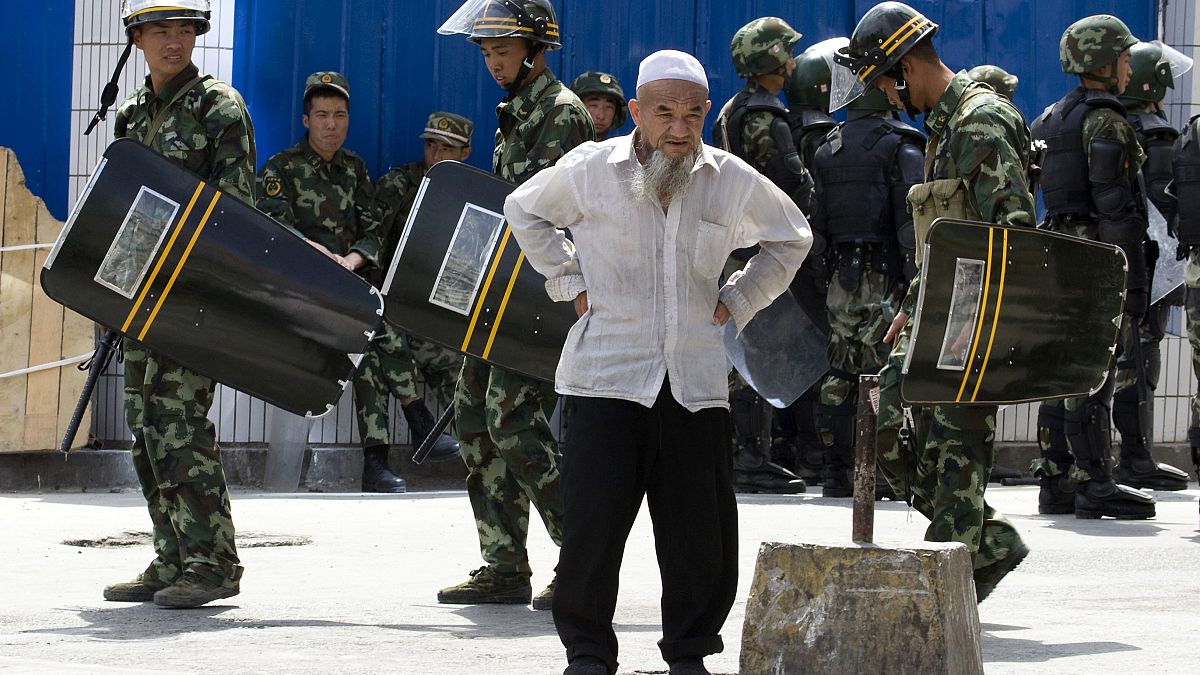They say the intimidation is 'unparalleled and illegal'.
In a damning new report, Amnesty International has accused China of harassing Uighurs and other ethnic Muslim groups, even after they've left the country.
The report is based on testimony from hundreds of people in 22 countries around the world.
The case studies allege that Beijing targets people from the autonomous Xinjiang territory, using pressure from its embassies, messaging apps and threatening phone calls.
'Unparalleled and illegal'
Nicholas Bequelin is Amnesty's regional director for east and south-east Asia and the Pacific. Speaking to Euronews' Good Morning Europe show, he said Chinese government papers leaked earlier this week confirm the findings of the new report.
"Chinese official documents establish very clearly that one of the missions of Chinese embassies and consulates abroad is to track down people who came from China, who came from Xinjiang, to identify them, to identify their relatives back in Xinjiang, to order their monitoring and surveillance."
The scope of this campaign is "unparalleled and illegal," Bequelin said.
"Any dealing with China, whether it's business or security or trade, should raise these issues and should ask the Chinese government for an account. This must be raised at the public level by governments.
In 2017, China began a campaign of mass detention of predominantly Muslim groups in Xinjiang. But Beijing has justified the policy as vocational education and training, aimed at countering extremism.
'Giant police state'
These issues must also be raised in connection with the coronavirus outbreak, Bequelin said.
"What we are seeing are policies that essentially rely on social control, use of artificial intelligence, facial recognition, big data, with the sole purpose of building a giant police state," he said.
Listen to the full interview with Nicholas Bequelin in the video player, above.
